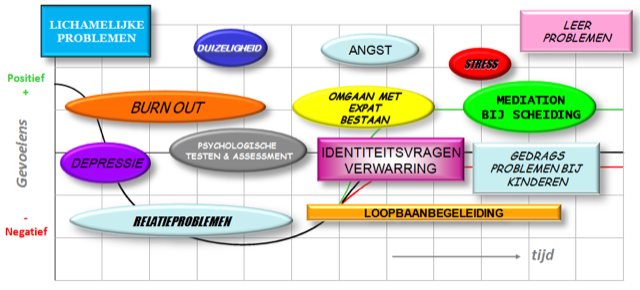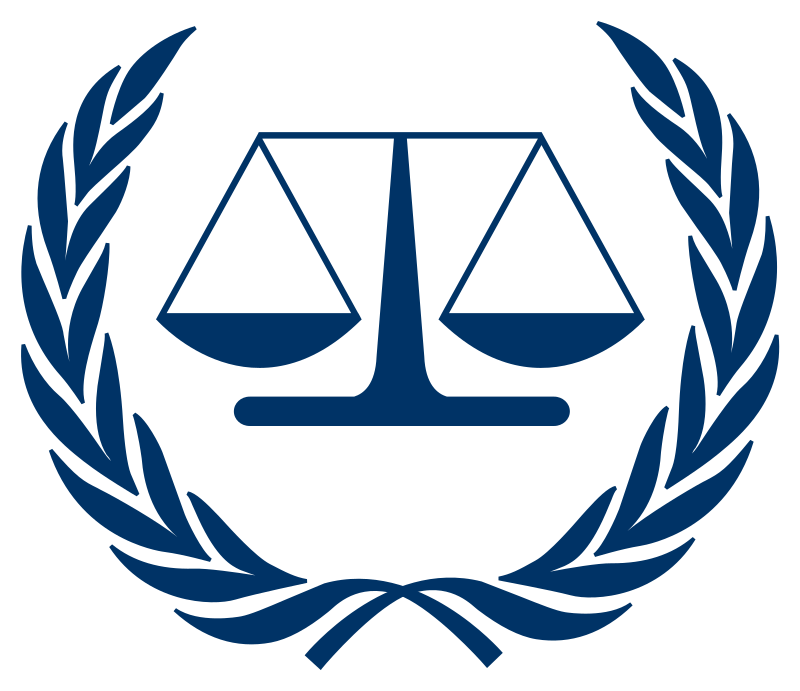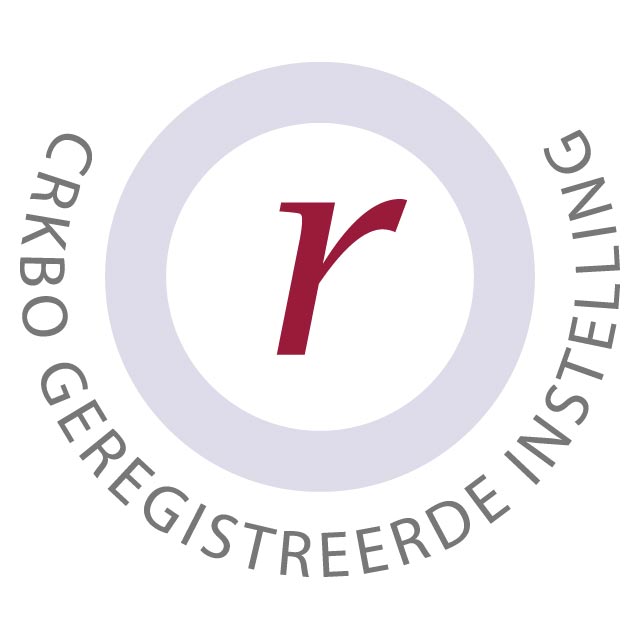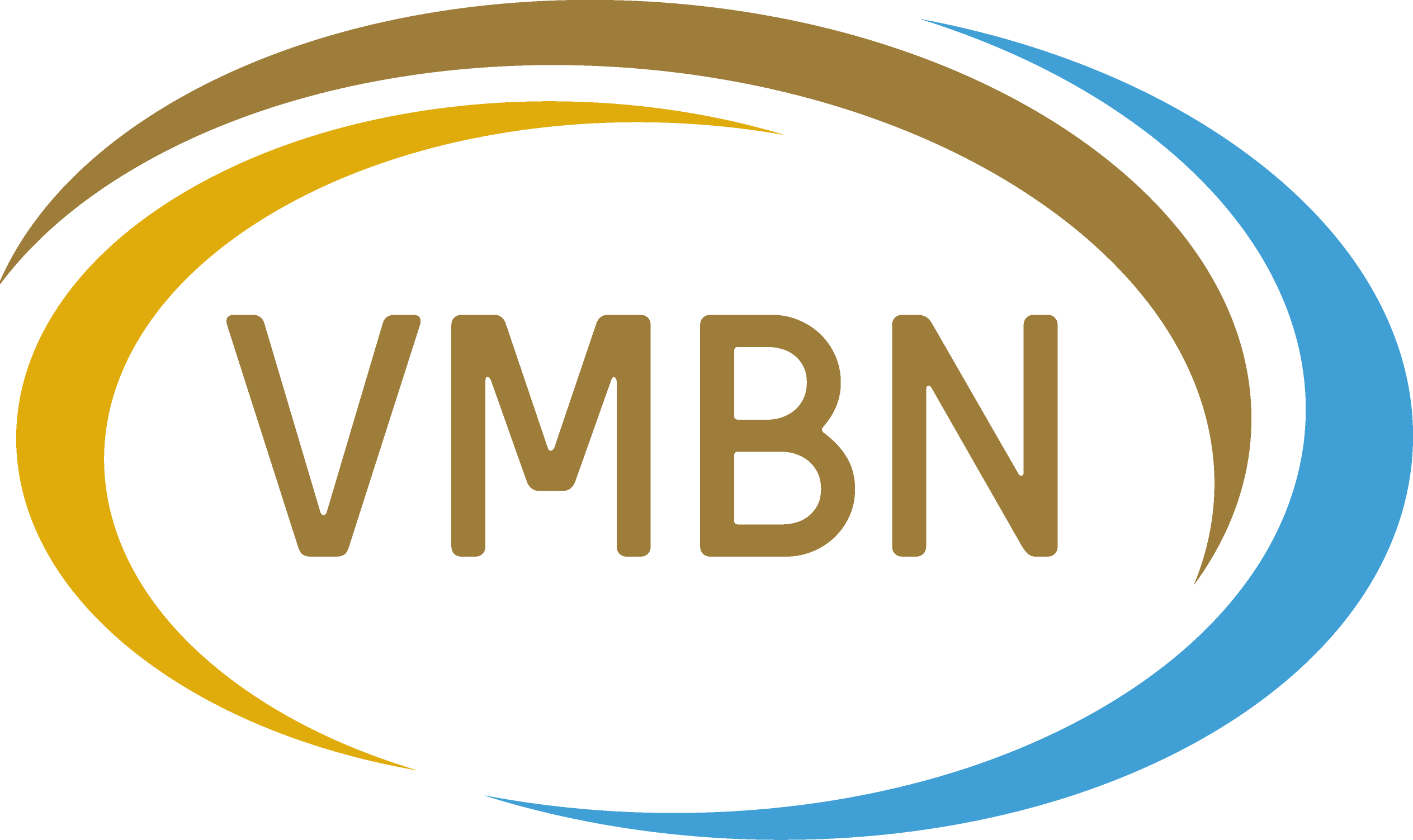Psychology & Therapy
Whether there are feelings of depression, listlessness, fear, insecurity, stress complaints, burnout, feelings of inferiority, identity questions, sexual problems, grief problems, assertiveness questions or career planning, therapy can help you regain control of yourself and the situation. It can help to understand your feelings and manage them in such a way that they are not “in charge” of your life, but that you are “in charge” of your feelings. When you regain control of your life, confidence and peace can return and you are better able to enjoy both yourself and your surroundings.
The therapy is based on three pillars: insight, experience and skills. You gain insight into the fact that these feelings are not isolated, but are related to certain situations, thoughts, experiences and habits (patterns). You will learn to make connections and understand when these feelings come into play. You gain insight into your blind spots and pitfalls, which can contribute to the fact that you get stuck and get into trouble. In addition to this insight, you will be taught alternative skills that will enable you to deal with yourself, your thoughts, feelings and situations in a different and better way. You learn to apply these new skills during therapy, so that you can have positive experiences. You take these new experiences with you to continue working at home, so that you regain more control over your life and can function optimally and enjoy life again.
Children are also offered help. In this case, the parents are always involved in the therapy. This can be for an intake interview, but this can also mean that the entire family will be present at the interviews. It can be about individual child issues, but also in the context of problems related to, for example, a divorce.


Practical information
You can register at the practice by telephone or via the contact form 'make an appointment'. I will then contact you to invite you for an intake interview. During this conversation, we discuss your complaints and request for help, relevant background information and a short description of your life history. If you have had previous assistance, it can be valuable to bring this information with you to the first meeting.
We will then draw up a treatment plan together that describes your treatment goals and the way to achieve these goals; this may be a therapeutic process or advice on what other form of therapy would be indicated. Therapy can take place face2face, online or blended.
If you want to register, you need a referral letter from the general practitioner; this is a condition for reimbursement of the treatment by your health insurer. There is generally no waiting time between the intake and the treatment, unless otherwise agreed.
At the moment, the registration waiting time is 3 weeks and the treatment waiting time is 3 weeks (01-04-2025).
Data practice
- Chamber of Commerce: 01135675
- AGB code healthcare provider: 94007468
- Practice AGB code: 94056608
- BIG registration: GZ psychologist 39909738925
Since 1 January 2014, the insured mental health care has been divided into 'general practitioner care', 'general basic mental health care' and 'specialist mental health care'. The access to the insured Mental health care is provided exclusively through the general practitioner and, with effect from 1 January 2015, is limited to persons aged 18 and older. The Dutch Healthcare Authority (NZa) has determined that from 2016 no referral letter from the GP is required if the client decides in advance to pay for the care himself. If the client makes this choice, the costs cannot still be claimed from the insurer.
The Youth Act applies to children and young people up to the age of 18 from 1 January 2015. Access to this care is provided exclusively through the general practitioner, paediatrician or youth healthcare doctor, but your municipality may decide to appoint other referrers as well. If the doctor suspects that your complaints or those of your child cannot be (partly) caused by a deeper problem, he/she will treat the complaints himself/herself, possibly with the help of a practice nurse, or refer you to, for example, social work.
If your doctor does suspect a deeper underlying problem, he/she will, depending on the assessment of the seriousness, refer you (in writing) to a care provider for 'general basic mental health care' or for 'specialist mental health care'. The boundary between the two types of care lies in complex, high-risk problems. The doctor will use a standard classification system for indicating problems.
Your practitioner confirms the doctor's earlier suspicion, or makes a new diagnosis himself. If it appears within 1 or 2 sessions that the problem does not fall within the criteria of General Basic Mental Health Care, you will be referred back to your doctor or referred to Specialist Mental Health Care in consultation.
SYNTAGMA provides care within the framework of 'general basic mental health care' and has concluded contracts with all health insurers for this purpose. This psychological care is reimbursed by the basic insurance on the basis of the Health Insurance Act. Click here for information. The mandatory excess for 2023 is at least 385 euros, depending on your own policy conditions.
However, a number of diagnoses are no longer reimbursed from the basic insurance, such as partner relationship problems or adjustment disorders. SYNTAGMA recommends that you inquire with your insurer how much you will be reimbursed exactly, depending on your own policy.
Given the insufficiently crystallized situation of youth assistance, SYNTAGMA has decided not to enter into contracts with municipalities. Costs for this help are therefore borne by the parents. There are municipalities that are open to reimbursement afterwards at the request of the parents.
As of 1 January 2022, the funding of mental health care will be based on the 'Care performance model'. In the brochure you can read what this means and what it means for you. This means that, as was the case before, each month the claims are submitted by SYNTAGMA directly to the insurer.
Payment by yourself
For care that is not part of the insured package, SYNTAGMA will make mutual agreements with you regarding the duration and content of the care to be provided. You can also choose to pay for the treatment yourself. In that case, there is no interference from the health insurer and your own risk is not used. You do not need a referral from your GP. The price we agree for this remains €120.00 per single session below the maximum rate as determined by the Dutch Healthcare Authority (NZa).
Appointments can be canceled free of charge up to two working days before the start of the appointment. You can do this by telephone via the telephone number of the practice or via my email address. If you cancel too late or if you do not cancel, the reserved time will be charged, regardless of the reason for cancellation or absence. These costs cannot be claimed from your health insurer. For more information, see the Terms and Conditions.
Accessibility
The practice can be reached for treatment appointments on: Wednesday and Thursday from 08:30 to 21:00 and on Friday from 08:30 to 17:00.
The practice can best be reached by email, because the telephone is not answered during the sessions. You can leave a voicemail or send an email.
I will try to contact you as soon as possible.
perception
If the continuity of your treatment is at stake due to a long-term absence, we will discuss together whether and, if so, by whom, possible replacement or replacement can offer support.
Deputization does not apply if I am absent due to, for example, a short vacation and study, because in principle you can inform me via email can be reached.
Speed
Due to the limited size of SYNTAGMA, there is no emergency department. In principle, registrations are processed in the order they are received and scheduled in a regular manner. If you need help faster because the emergency is urgent, please consult your doctor.
If you find the waiting time too long, you can always contact the care provider or your health insurer and ask for waiting list mediation. Your health insurer can support you, so that you receive an intake interview within 4 weeks of your first contact with a healthcare provider and that the treatment is started within 10 weeks of the intake interview.
Crisis
SYNTAGMA has no crisis service or recording locations. When you are in treatment, you can contact us directly in case of crisis on Wednesday and Thursday. If necessary, your GP will be contacted, who can call in the crisis service if necessary. If you cannot speak to your practitioner quickly enough in the event of a crisis, contact your GP or the replacement of your GP or the crisis service yourself as soon as possible. You can call the doctor's service in the evenings and at weekends. He will call in crisis aid if necessary.
Below you will find the telephone numbers and addresses of the websites of the doctor's services in the region:
Catharina Hospital Eindhoven
Michelangelo Avenue 2
5623 EJ Eindhoven
040 – 239 91 11
GP post East Brabant from 10:00 PM - 8:30 AM
088 – 876 51 51
GGzE Crisis Care until 10:00 PM
040 – 782 12 77
Police 0900 – 8844;
If necessary, you can immediately register someone with the GGzE crisis service
Dossier creation and privacy regulations take place in the context of the Medical Treatment Agreement Act (WGBO). The practice has its own privacy policy. A file is kept of the treatment. All data that are important for the treatment are recorded in it. Clients, from the age of 16, have the right to view their own file. Others may only view the file with your written permission. You can also withdraw this permission later. Even after your death, others have no right to inspect your file. If certain data prove to be incorrect, you have the right to have improvements, additions or changes made. If you wish, you can obtain a copy of part or all of the file. You must make this known in writing. The costs incurred for this will be charged. In addition to your right to inspect your file, you also have the right to request destruction of the file. Your written or oral information is strictly confidential. Information is provided to and information is collected from third parties, such as a company doctor or an insurance doctor, only if you have been informed about the content and only with your written permission. With your approval, as recorded in the file, your GP will be kept informed of your treatment process. In accordance with the guidelines of the NIP (Dutch Institute for Psychologists), the care provider does not provide information to lawyers. Information that is required for reimbursement by the health insurer is provided to the relevant body with due observance of the privacy regulations, such as physical checks by the health insurer.
The care provided by SYNTAGMA meets the requirements set in the relevant legislation and regulations, quality standards, guidelines and protocols. SYNTAGMA works exclusively with proven, scientifically based treatment methods and uses validated measuring instruments. All providers of 'medical GGZ' – including Generalist Basic GGZ – are required by the Health Insurance Act to publish a quality charter. SYNTAGMA has its quality status submitted to the Quality Register of the National Health Care Institute.
Birgitte MJ Beelen is a member of the National Association for Independent Psychologists and Psychotherapists (LVVP). The practice is tested via visitation to see whether it meets the quality requirements. The practice was inspected in 2023.


Legislation
The actions of the generalist basic mental health care provider take place within the following legal and regulatory frameworks. These frames are:
- Professions in Individual Health Care (Wet BIG): In the law BIG you can look up the powers of professionals in health care: https://www.bigregister.nl/
- Medical Treatment Agreement Act (WGBO), https://hulpgids.nl/recht/wettelijke-regelingen/tekst-wgbo
- Personal Data Protection Act (WBP), http://wetten.overheid.nl/BWBR0011468/2016-01-01
- Right of Complaint for Clients in the Healthcare Sector Act (WKCZ), http://wetten.overheid.nl/BWBR0007414/2015-01-01
- Health Insurance Act (ZVW), http://wetten.overheid.nl/BWBR0018450/2016-08-01
Complaints procedure about the treatment and treatment (according to the LVVP guideline)
Complaints about the treatment by your practitioner or about the treatment are best discussed with your practitioner in the first instance. It is possible that there are misunderstandings that can be resolved in a conversation. If it is not possible to solve the problems directly with your practitioner, you can use the following options: mediation by a complaints officer and the complaints committee of the LVVP. In addition, the handler uses the Safe Incident Notification (VIM) system where he accurately reports incidents. See for more information “Specification of complaints procedure about the treatment and the treatment”.
Psychology & Therapy
Testimonials
Psychology & Therapy
Professional associations
Birgitte is a member of the following professional associations and networks.
Newsletter
Do you want to stay informed of the latest news? Sign up for the 3-monthly newsletter by email!








